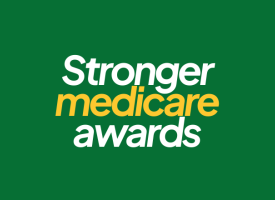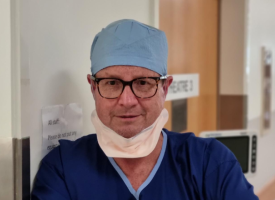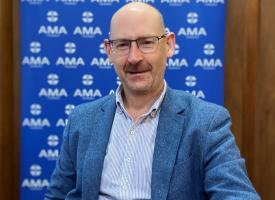AMA Transcript - The Government dumps GP co-payment, keeps indexation freeze to 2018
Transcript: AMA President, A/Prof Brian Owler, Radio National Drive, 3 March 2015
Subject: The Government dumps GP co-payment
PATRICIA KARVELAS: And listening in to that conversation is the President of the Australian Medical Association, Professor Brian Owler. Welcome to the program.
BRIAN OWLER: Thanks, Patricia.
PATRICIA KARVELAS: Do you accept there are inefficiencies in the system?
BRIAN OWLER: Look, I do. And I don't think it's a novel concept that the medical profession are working to actually improve the efficiency of the health care system. I mean, doctors do that every single day in their practices and in their hospitals. And you have only got to look at things like relative length of stay - I mean the number of days or nights that people spend in hospitals for procedures has fallen dramatically over the years. So we're always looking to get the best value for the health dollar, and certainly the medical profession sees itself as playing an active role there.
PATRICIA KARVELAS: So, you were listening in to my interview with Sussan Ley; I see it as two messages that are being sent out, correct me if I'm wrong, one that they've dumped the co-payment, but another that they still think some sort of price signal is the right thing to do with GP visits. Is that how you're seeing it?
BRIAN OWLER: Well there's certainly that initial policy intent that's still there encouraging people to make some contribution where they can afford it when they go and see a GP. Now, look, I welcome the news that the co-payment proposal is dumped, dead, buried, and cremated, as the Prime Minister has said. And I think everyone welcomes that news and the end to that uncertainty, and the fact that it's off the table.
Now, I don't agree that the price signal has a place in general practice or in primary care. You actually want to encourage people to see a doctor. So the idea of having a mandatory price signal is not something that we can support. But, where there could be some flexibility that makes it easier for people who can afford to contribute to make a modest contribution, that, to the AMA, is not unreasonable, and we have argued all along that most of our objections have been around the protection for vulnerable patients. So if we can have those protections, we can make sure that people were not forced to make a contribution, and that discretion is there for the doctor, who is in the best position to make some sort of judgement, then that's the sort of policy that the AMA's happy to work with.
PATRICIA KARVELAS: You're pretty unhappy about the freeze on Medicare indexation rebates for four years, why?
BRIAN OWLER: Well, first of all, you've got to understand for general practice, I mean they have all of those overheads - staff, equipment, cost of the practice nurse, for instance - and if their rebate is staying the same over the four-year period then it means that they either have to compromise on their consultations, or see more patients within a shorter amount of time, or they just can't afford to hire people like practice nurses. And so the only alternative that they have is to start privately billing, and for some areas, for some disadvantaged areas in particular, that's just not viable; it is harmful to the patients and threatens the viability of those practices.
But for specialist practice there are more issues to do with private health insurance, and the schedules for private health insurance. So that is going to put a lot of strain on out of pocket expenses and the participation rates in private health insurance, and that in turn then puts stress on the public hospital system. And these are the sort of consequences that happen when policy is introduced without talking to doctors that are working at the coal face.
PATRICIA KARVELAS: Brian Owler, the Prime Minister has made it perfectly clear that he believes he needs the consent, in some ways, of doctors before they go forward with another proposal. That gives you an enormous amount of power. How do you plan to use it, and what will you be demanding?
BRIAN OWLER: Look, the AMA works in the best interest of our patients. I mean, we are doctors at the end of the day, and that's the reason that we're actually here. So we're interested in getting better health policy, not only for our members - I mean, obviously we work to look after their interests - but also, I mean our major interest is in looking after our patients and getting better health policy. So, it's not about flexing power or muscle, it's about making sure that we get the best outcomes for patients at the end of the day. And I'm very keen to work with the Government and the Prime Minister to come up with those policies that will benefit, hopefully not just the Government, but of course our patients. And so we're happy to play that role.
PATRICIA KARVELAS: Brian Owler, thanks for joining me on RN Drive.
BRIAN OWLER: It's a pleasure, thank you.
3 March 2015
CONTACT: John Flannery 02 6270 5477 / 0419 494 761
Odette Visser 02 6270 5412 / 0427 209 753



